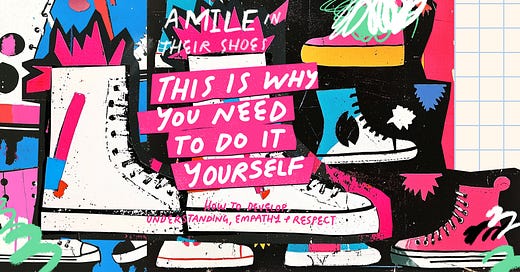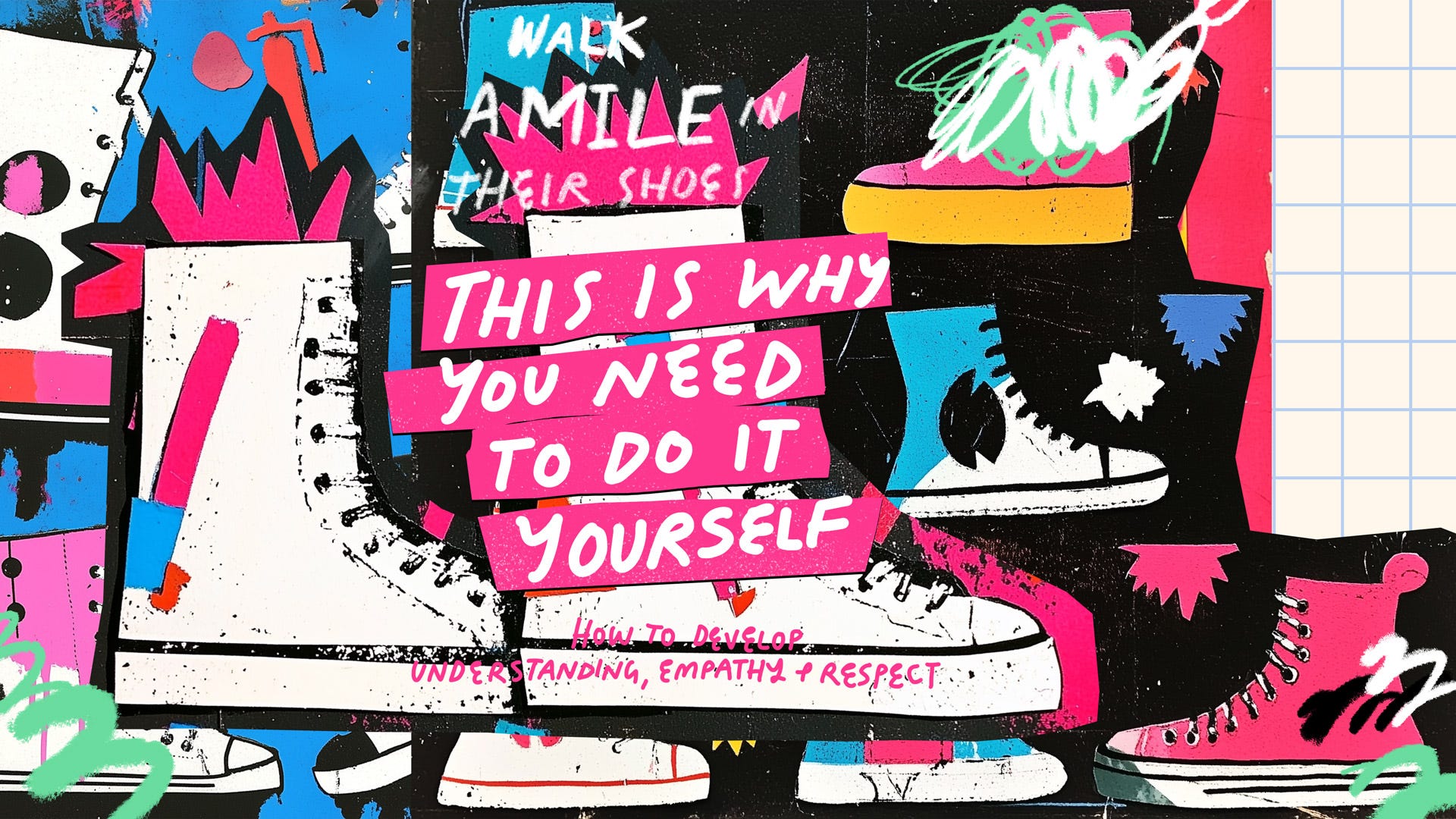You don’t truly understand a problem—or someone else’s struggles—until you’ve had to deal with it yourself.
Like the day I opened the washing machine and found one hundred tiny pieces of soggy tissue scattered across my clean clothes. Cleaning up that mess gave me a new appreciation for why my wife insists I check my pockets before doing the laundry.
Doing something yourself transforms knowing into understanding—deep, intuitive, gut-level understanding.
When I vacuumed and had to unplug the cord to reach the rest of the house, I understood. When I used his outdated computer and everything took four times as long, I understood. When I endured a cold, dark European winter, I understood. When I became a parent, I understood.
Deeply. Empirically. Intuitively.
Hands-on experience teaches you far more than reading or watching, whether on a screen or in real life. Because you’re using all your brain and body—with all your senses, and with both conscious and unconscious parts of your brain—to gather information in real time.
This kind of learning doesn’t just deepen my understanding of the task. It changes how I see people. I gain respect and empathy for their struggles. I understand why they act the way they do. And because I’ve walked in their shoes, they’re more open to my questions, suggestions, and criticism.
Head-knowledge might give you the facts, but firsthand experience gives you the feelings. It bridges the gap between knowing about someone’s struggles and truly understanding what it’s like to walk in their shoes.
After doing it myself I’ll give in and order a new cordless vacuum.
After doing it myself I’ll tell him to spend $20/month on a new piece of software.
After doing it myself I’ll spend 30 seconds checking for tissues in everyone’s’ pockets before dumping the clothes in the laundry basket.
It’s not just me who learns this way.
If you’re frustrated with someone—your partner, your coworker, your boss—maybe it’s time to walk a mile in their shoes. Clean the toilet. Do the presentation. Take care of the baby. Stop assuming, explaining, or complaining. Try it yourself.
And if someone’s frustrated with you, maybe it’s time to let them walk in your shoes. Let them experience what you’re dealing with firsthand. They might discover a better way to do it—or they might come away with a deeper respect for you and what you do.
Experiential learning changes everything. It replaces resentment with empathy, judgment with admiration, and frustration with understanding. Like the soggy tissues all over my clothes, it reminds us that some lessons can’t be explained—they have to be experienced firsthand.




